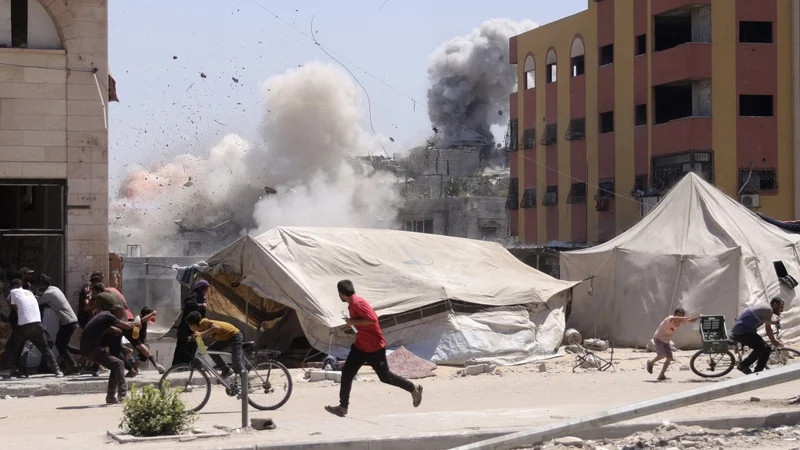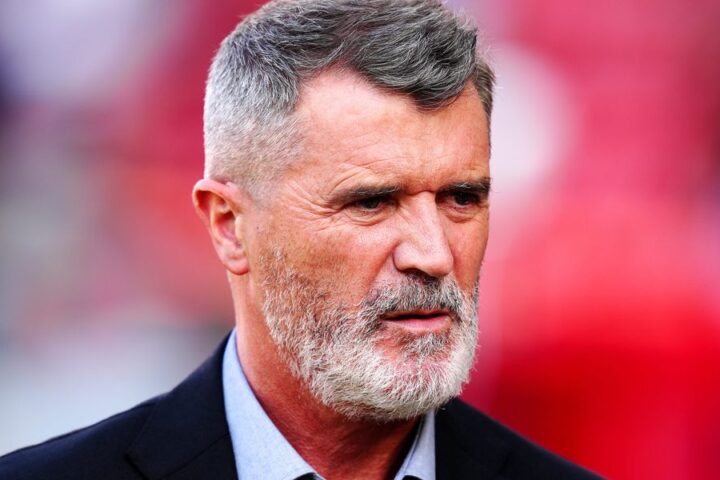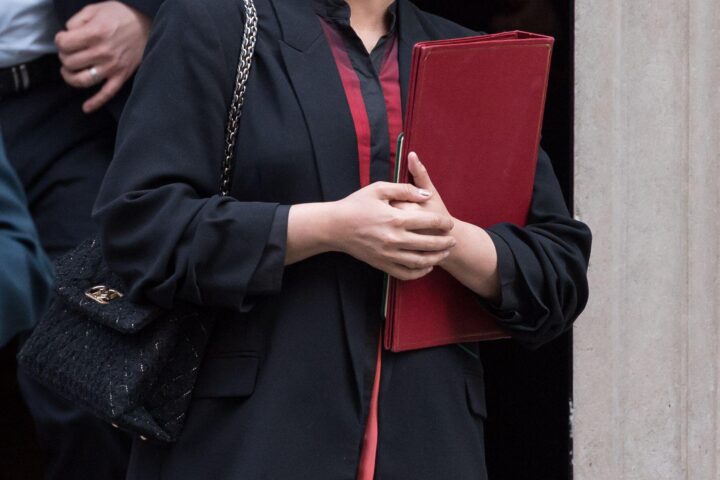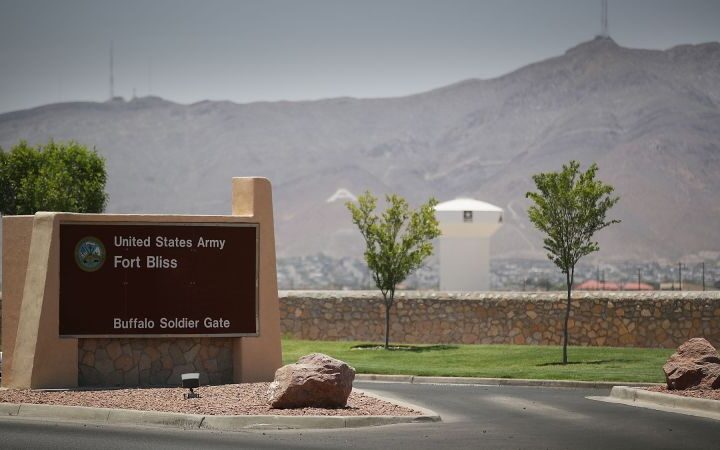A widely condemned Israeli settlement plan that would cut across land which the Palestinians seek for a state has received final approval, according to a statement from Israeli Finance Minister Bezalel Smotrich.
The approval of the E1 project, which would bisect the occupied West Bank and cut it off from East Jerusalem, was announced last week by Mr Smotrich and received final go-ahead from a defence ministry planning commission, he said.
Restarting the project could further isolate Israel, which has watched some Western allies frustrated by its continuation and planned escalation of the Gaza war announce they may recognise a Palestinian state at the United Nations General Assembly in September.
“With E1 we are delivering finally on what has been promised for years,” Mr Smotrich, an ultra-nationalist in the ruling right-wing coalition, said in a statement.
“The Palestinian state is being erased from the table, not with slogans but with actions.”

The Palestinian foreign ministry condemned the announcement, saying that the E1 settlement would isolate Palestinian communities living in the area and undermines the possibility of a two-state solution.
A German government spokesperson commenting on the announcement said that settlement construction violates international law and “hinders a negotiated two-state solution and an end to the Israeli occupation of the West Bank”.
Israeli Prime Minister Benjamin Netanyahu has not commented on the E1 announcement.
However on Sunday, during a visit to Ofra, another West Bank settlement established a quarter of a century ago, he made broader comments, saying: “I said 25 years ago that we will do everything to secure our grip on the Land of Israel, to prevent the establishment of a Palestinian state, to prevent the attempts to uproot us from here.
“Thank God, what I promised, we have delivered.”
The two-state solution to the decades-old Israeli-Palestinian conflict envisages a Palestinian state in East Jerusalem, the West Bank and Gaza, existing side by side with Israel.
Western capitals and campaign groups have opposed the settlement project due to concerns that it could undermine a future peace deal with the Palestinians.
The plan for E1, located adjacent to Maale Adumim and frozen in 2012 and 2020 amid objections from the US and European governments, involves construction of about 3,400 new housing units.
Infrastructure work could begin within a few months, and house building in about a year, according to Israeli advocacy group Peace Now, which tracks settlement activity in the West Bank.
Most of the international community considers Israeli settlements in the West Bank illegal under international law.
Israel disputes this, citing historical and biblical ties to the area and saying the settlements provide strategic depth and security.
Israel approves plan to take over Gaza City
Meanwhile, Israel’s defence minister has approved a plan for the conquest of Gaza City and authorised the call-up of around 60,000 reservists, piling pressure on Hamas as mediators push for a ceasefire.
Defence Minister Israel Katz’s move, confirmed by a spokesperson, came as mediators awaited an official Israeli response on their latest proposal.
While mediator Qatar had expressed guarded optimism over the latest proposal, a senior Israeli official said the government stood firm on its call for the release of all hostages in any agreement.
The framework that Hamas had approved proposes an initial 60-day truce, a staggered hostage release, the freeing of some Palestinian prisoners and provisions allowing for the entry of aid into Gaza.
On the ground in Gaza City, Mustafa Qazzaat, head of the emergency committee in the Gaza municipality, described the situation as “catastrophic”.

He said that “large numbers” of people were fleeing their neighbourhoods, with the majority of those displaced “on the roads and streets without shelter”.
Aida Abu Madi, a 48-year-old resident of Zeitoun, said she fled on Wednesday with her husband, children and three grandchildren to the home of relatives in western Gaza City.
“I didn’t hear about Israel’s decision, but I saw my neighbours fleeing, so I fled too,” she said.
Anis Daloul, 64, said he fled Zeitoun with his family on Sunday for a neighbourhood northwest of Gaza City.
He said that the Israeli military had “destroyed most of the buildings in Zeitoun and displaced thousands of people”.
Israel’s security cabinet chaired by Mr Netanyahu approved the plan to conquer Gaza City in early August, sparking fears it will worsen the already catastrophic humanitarian crisis in Gaza.
According to Israeli media reports, Mr Netanyahu has not yet called a security cabinet meeting to discuss any response to the latest truce proposal.
‘Rejects escalation’
Mr Netanyahu has come under growing pressure at home and abroad to end the war, with the German government saying that it “rejects the escalation” of Israel’s campaign.
Mr Katz’s approval of plans to conquer Gaza City came days after Hamas said it had accepted the latest proposal from mediators for a ceasefire to halt almost two years of devastating war.
Sources from Hamas and its ally Islamic Jihad said that the proposal envisages the release of 10 hostages and 18 bodies from Gaza.
The remaining captives would be released in a second exchange within the 60-day period, during which negotiations for a permanent ceasefire would take place, the sources said.
Israel and Hamas have held on-off indirect negotiations throughout the war, resulting in two short truces during which Israeli hostages were released in exchange for Palestinian prisoners.
Of the 251 hostages taken during Hamas’s October 2023 attack that triggered the war, 49 are still in Gaza, including 27 the Israeli military says are dead.
Qatar, one of the mediators in the talks, said the latest proposal was “almost identical” to an earlier version agreed by Israel, while Egypt said on Monday that “the ball is now in its (Israel’s) court”.
Mr Netanyahu has yet to publicly comment on the truce plan, but said last week that his country would accept “an agreement in which all the hostages are released at once and according to our conditions for ending the war”.

‘Prolonged operation’
An Israeli military official told journalists today that the new phase of combat would involve “a gradual precise and targeted operation in and around Gaza City,” including some areas where forces had not previously operated.
The official said the military had already begun operating in the neighbourhoods of Zeitoun and Jabalia as part of the initial stages.
Gaza’s civil defence agency said Israeli strikes and fire killed at least 25 people across the territory today.
When contacted by AFP, the Israeli military asked for coordinates and specific timeframes to comment on the reports, but said it would look into reports of eight people killed by Israeli fire near an aid site in the centre of Gaza.
Media restrictions in Gaza and difficulties accessing swathes of the Palestinian territory mean AFP is unable to independently verify the tolls and details provided by the civil defence agency or the Israeli military.
Hamas’s October 2023 attack on Israel resulted in the deaths of 1,219 people, mostly civilians, according to an AFP tally based on official figures.
Israel’s offensive has killed at least 62,122 Palestinians, most of them civilians, according to figures from the health ministry in Hamas-run Gaza, which the United Nations considers reliable.

Ceasefire deal ‘very much the same’ as previous deal
Middle East Director of the International Communities Organisation Gershon Baskin has said that apart from a “few minor differences, nothing significant” the latest proposed ceasefire deal in Gaza is “very much the same” as what the US special envoy, Steve Witkoff, previously proposed.
“This deal could have been done months ago,” Mr Baskin said.
“It wasn’t done because Israel was demanding a partial deal with much harsher terms for Hamas to accept, Hamas was interested in a permanent deal.”
Speaking on RTÉ’s Morning Ireland, Mr Baskin said Hamas was told by Qatari and Egyptian mediators that Israel would “never accept a full deal”.
He said the reason for this is that Hamas’ conditions for a full deal of releasing all the hostages is that the war be over and that Israel withdraws from Gaza.
He said the Israeli side is giving “conflicting” messages.
“We heard from the spokesperson from the prime minister’s office that Israel wants a full deal, but they’re not spelling out what that means.
“What that means is that they want a full deal to return all the hostages but they want to continue their military presence in Gaza and continue the war, which is certainly not going to be acceptable to Hamas or to the Arab neighbours as well,” he said.
In Israel, the threatened offensive on Gaza City prompted tens of thousands of Israelis on Sunday to hold some of the largest protests since the war began, urging a deal to end the fighting and free the remaining hostages held in Gaza.
Mr Netanyahu faces domestic political pressure from his far-right government partners who object to a truce with Hamas. Ministers Bezalel Smotrich and Itamar Ben-Gvir have demanded to keep the war going until Hamas’ defeat, and annex Gaza.
Groups representing Israeli families of those held hostage have demanded their return to Israel and an end to the war.















